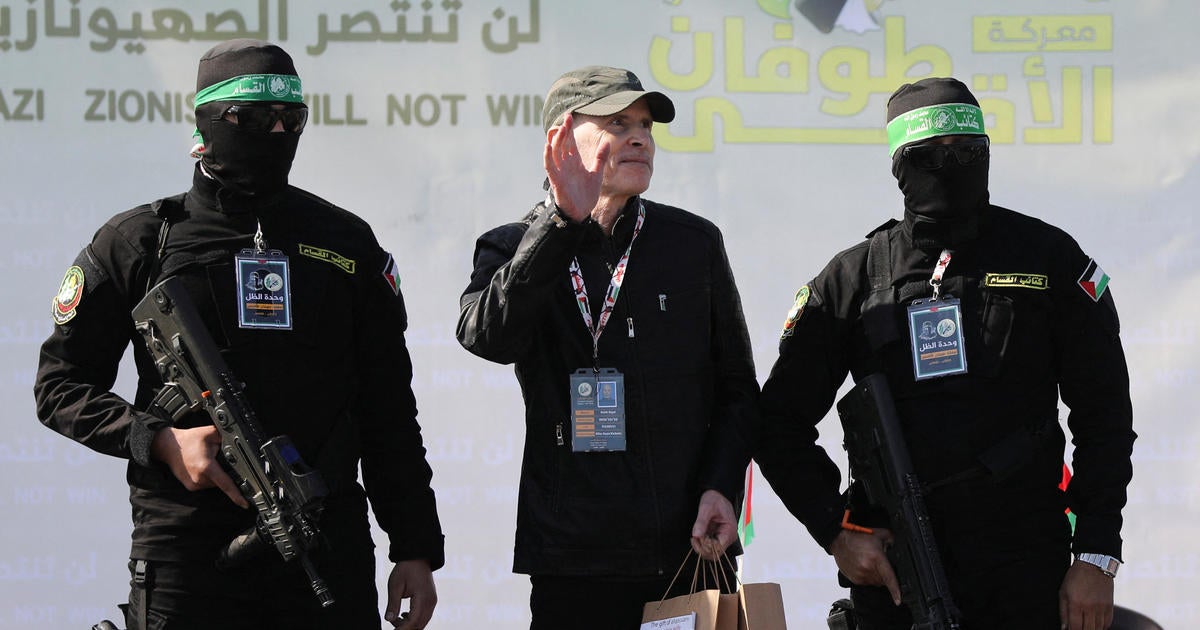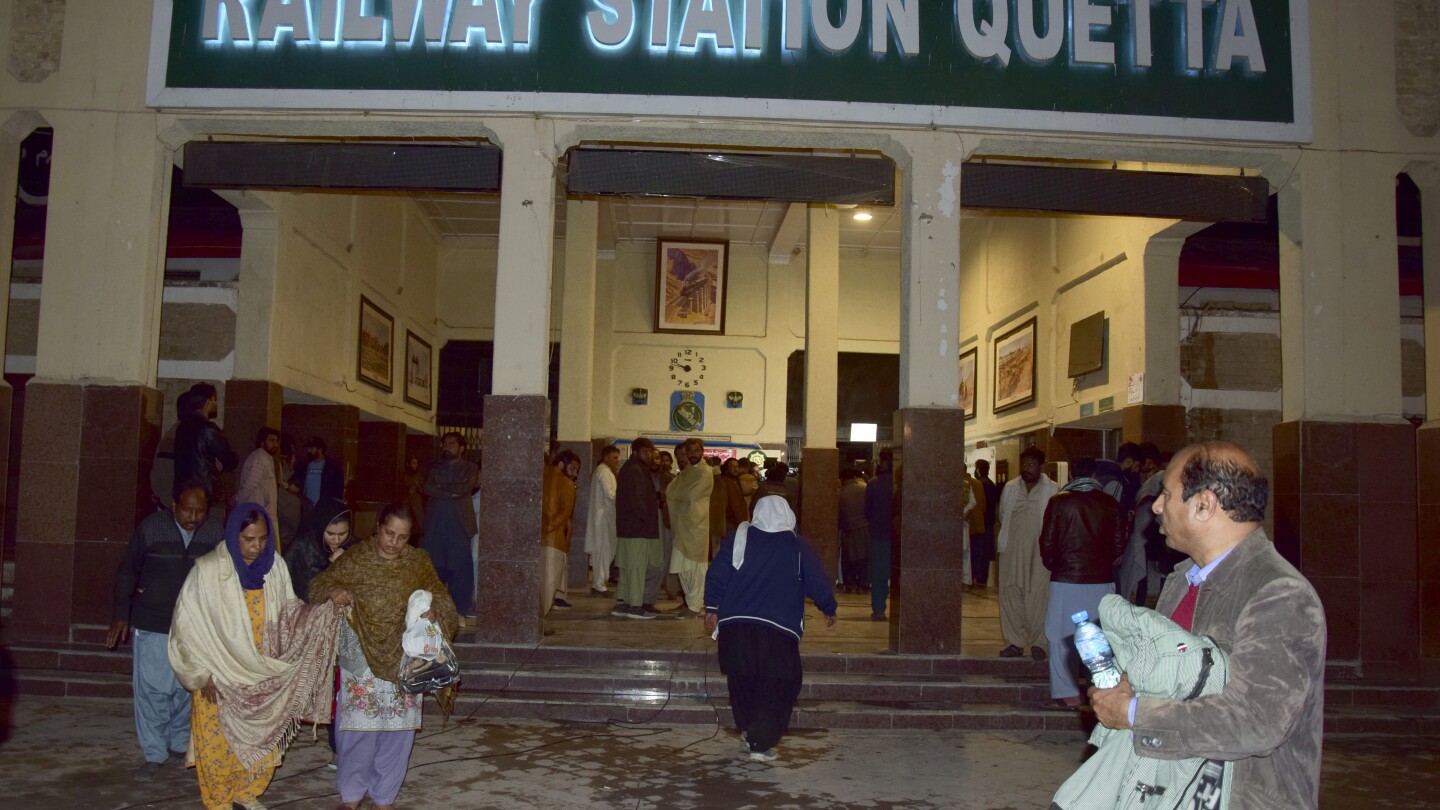Hostage Release Sparks Hope: The Third Israel-Hamas Exchange Unfolds
In a significant development that has captured global attention, American-Israeli Keith Siegel and two other hostages have been released amid the ongoing ceasefire negotiations between Israel and Hamas. This latest exchange, the third of its kind in recent weeks, ignites a flicker of hope for families affected by the protracted conflict and raises crucial questions about the future of peace talks. As the world watches, the humanitarian implications of these exchanges resonate deeply within the communities affected by the violence.
The Context of the Hostage Situation
The hostage crisis has been one of the most distressing aspects of the Israel-Hamas conflict, which has seen a resurgence of violence over the past few years. Hostages held by both sides often become pawns in the larger political struggle, and their release can signal a shift in negotiations or a temporary easing of hostilities.
Keith Siegel, along with two other hostages, was taken during a violent raid that shocked the international community. Their release comes as negotiations for a ceasefire continue, highlighting the complex interplay of humanitarian concerns and political maneuvering. For families of the hostages, each exchange brings a mix of hope and anxiety, as they yearn for the safe return of their loved ones.
Impacts of the Recent Hostage Exchange
The recent release of Siegel and the other hostages has sparked a wave of relief among their families and supporters. This exchange not only represents a personal victory for those involved but also serves as a potential turning point in the ongoing conflict. Here are some implications of this development:
- Humanitarian Relief: The safe return of hostages is a humanitarian triumph, providing much-needed relief to families who have endured unimaginable stress and uncertainty.
- Political Significance: This exchange could pave the way for further negotiations, as both sides may be encouraged to consider the human cost of their actions.
- International Attention: The involvement of American citizens in the hostage situation has drawn significant international scrutiny, prompting global calls for increased diplomatic efforts to resolve the conflict.
Future of Peace Talks
The release of hostages like Keith Siegel raises questions about the future of peace talks between Israel and Hamas. Will this exchange lead to a sustained ceasefire, or is it merely a temporary reprieve? Analysts suggest that while the release is a positive step, it is essential to remain cautious.
Historically, exchanges of hostages have been used to build trust and foster dialogue, but they can also be seen as tactical moves within a larger strategy. The key factors that will influence the trajectory of peace talks include:
- Mutual Trust: For negotiations to progress, both parties must demonstrate a commitment to dialogue and a willingness to address each other’s concerns.
- International Mediation: The role of international mediators could prove crucial in facilitating discussions and ensuring that both sides adhere to any agreements reached.
- Addressing Underlying Issues: A lasting peace will require tackling the root causes of the conflict, including territorial disputes and issues of national identity.
The Humanitarian Perspective
The humanitarian impact of the hostage situation cannot be overstated. Families endure emotional turmoil as they navigate the uncertainty of their loved ones’ fates. The psychological toll of such experiences often extends beyond the immediate family, affecting entire communities.
Organizations working in the region emphasize the importance of support systems for families affected by the conflict. Psychological aid, community support, and initiatives aimed at fostering dialogue can help heal the wounds inflicted by violence. In the wake of the latest exchange, many families are calling for a broader dialogue that prioritizes humanitarian needs over political objectives.
Community Responses
The release of hostages has sparked a variety of responses within communities both locally and internationally. In Israel and around the world, people are expressing solidarity with the families of hostages, advocating for more comprehensive peace efforts.
Community organizations are mobilizing to provide support for those affected, emphasizing the need for continued dialogue and cooperation. Social media has played a crucial role in raising awareness and rallying support for families waiting for the return of their loved ones.
Looking Forward: A Path to Lasting Peace?
While the release of Keith Siegel and the other hostages is a moment of hope, it is vital to recognize that the path to lasting peace remains fraught with challenges. Both Israel and Hamas face internal pressures that can complicate negotiations, and the broader geopolitical landscape continues to influence the conflict.
For peace talks to succeed, a multifaceted approach is necessary. This includes:
- Engagement with Civil Society: Involving civil society organizations in the dialogue can help bridge divides and foster understanding between communities.
- Long-Term Vision: Both sides must articulate a long-term vision for peace that addresses the needs and aspirations of all affected populations.
- International Support: The international community must remain engaged, providing support for peace initiatives and holding parties accountable for their commitments.
Conclusion
The third Israel-Hamas hostage exchange, featuring the release of Keith Siegel and two others, represents a glimmer of hope in a complex and often tragic conflict. It serves as a reminder of the human cost of war and the pressing need for dialogue and understanding. As families celebrate the safe return of their loved ones, the world watches closely, hopeful that this exchange can be a catalyst for broader peace efforts. The journey toward lasting peace is long and arduous, but with each step, the prospects for a brighter future grow a little stronger.
See more Update My News



